Hive Thinking: Beekeeping Makes A Buzz In Ivory Coast
Night has just fallen in central Ivory Coast and the hour has come for two men, venturing forth in protective suits, veils and gloves, to steal honey from their bees.
The art of beekeeping has spread swiftly in Assounvoue, in the heart of the world's top cocoa producer.
Farmers started taking up honey-making to supplement their income -- and then also realised their primary crops did better when pollinated by the bees. Word of the twin benefits spread fast.
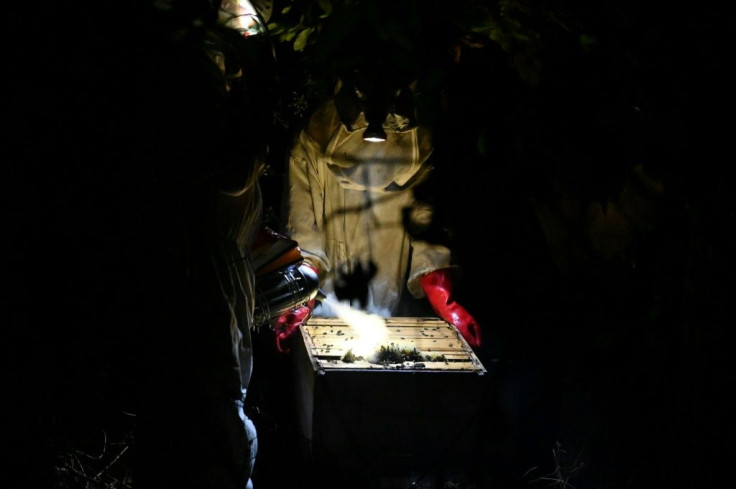
"In West Africa, you have to harvest the honey at night," says French beekeeper Sebastien Gavini, co-director of a firm called Le Bon Miel de Cote d'Ivoire (The fine honey of Ivory Coast).
"These bees are savage and aggressive -- they don't let you go. By working at night, you don't get pursued by the bees, which means we don't put people at risk."
West African bees are "wilder and barely used to contact with human beings," Gavini explains.
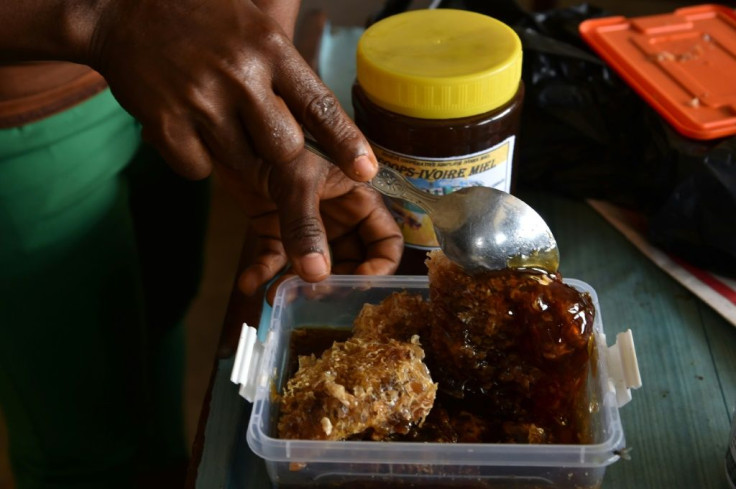
He contrasts these characteristics with milder-natured European bees which have been kept for centuries -- and sadly are now threatened in many areas by insecticides.
Modern beekeeping is only getting started in Africa, says Francois Silue, a member of the Ivorian Cooperative Company (SCI) at Katiola in the north, the source of the country's most highly-regarded honey.
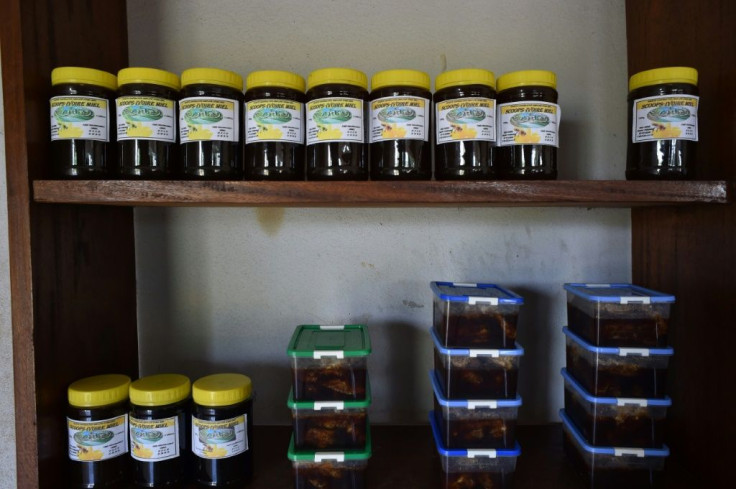
"Our duty is to stop farmers from killing the bees, to change their culture," explains Silue, who was trained by Japanese and German specialist aid workers.
The SCI brings together about 50 beekeeping farmers.
Obtaining statistics on the beekeeping business is complicated at national level.
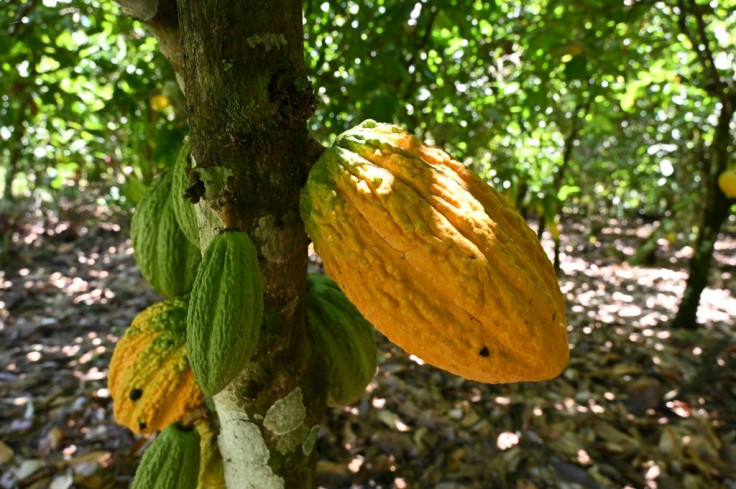
"There are only partial figures," says Marcel Iritie, president of the Agricultural Platform of Ivory Coast.
The platform estimates that 30 tonnes of honey are produced each year by about 100 members and several cooperatives.
"But that doesn't take into account hundreds of small producers," Iritie notes.
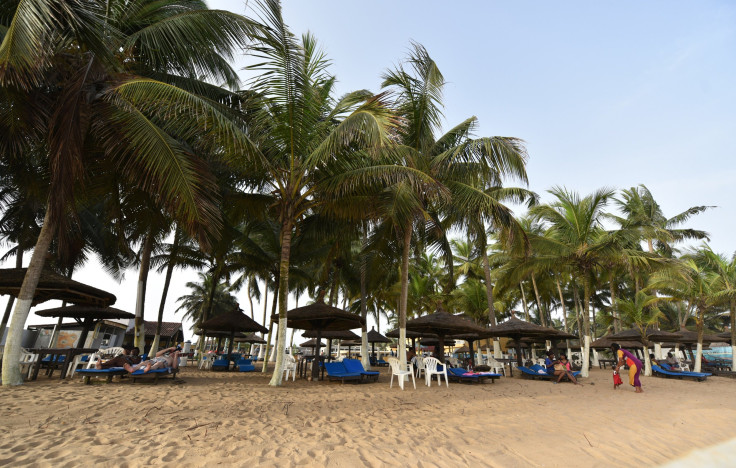
All or nearly all these people have kept their traditional roles as farmers, treating the production of honey as a secondary activity.
"The farmer who goes into beekeeping wins twice over," argues Mathieu Offi, who works alongside Gavini.
"Money is earned from the honey and harvests are better because of better pollination."
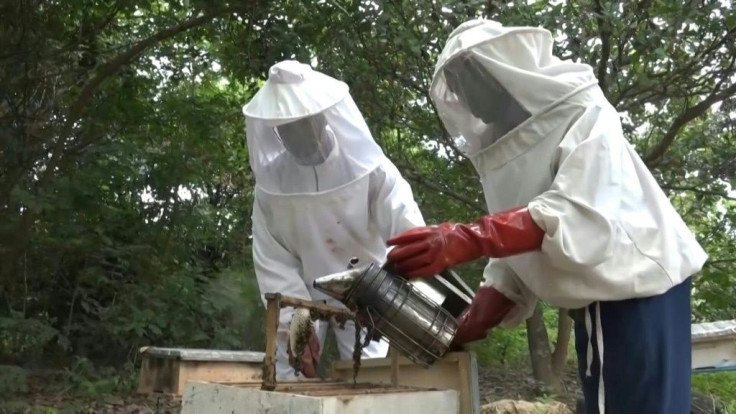
While he gives training classes as one of the most experienced beekeepers in the country, Offi also carries on with his work as a farmer near Kossou in the middle of the country.
"Thanks to the bees, (cocoa) production can be multiplied by 1.6," he adds.
"It's the bees who do all the work!"
Offi and Gavini have installed their beehives across a strictly organic market garden in Assounvoue in a successful marriage of cultures.
"Bees are like humans, they thrive when the environment is right," Offi says. "With pesticides, they suffer."
"I need five more hives," says Ahmed Yao, a farmhand who benefits both from the sale of market produce and income from honey.
Gavini and Offi have signed partnerships with agro-business ventures producing bananas and other fruits.
"It's a win-win situation," Gavini says, stressing the advantages of pollination and providing training for small farmers.
Gavini says a relatively tiny investment is needed for bee keeping.
"All in all, a hive costs 35,000 CFA francs (53 euros/$64). Add the clothing and some basic equipment, and it's 65,000 CFA (99 euros) at the most. You get the money back in the first year."
The price of a kilogramme (2.2 pounds) of honey ranges from 3,000 to 10,000 francs (15 euros), while spinoff products (bees' wax, propolis varnish, essential oils and even bee venom) also sell well.
"The taste of the honey depends on what the bee has been foraging. Honey from here is renowned because there are acacias and cashew nuts. It's sweet," says Edvige Brou Adoua, a saleswoman at the Katiola cooperative.
But, she insists, you should always buy directly from the outlet, not from a product hawked on the roadside. In the economic capital Abidjan, it is not uncommon for street vendors to sell honey mixed with water and sugar.
"Quality is the most important thing," agrees Sebastien Gavini.
"We have the good luck to have incredible varieties of honey," he says, reeling off some of the botanical treasures of the Ivory Coast, from coffee flowers, kapok and orange trees, to acacias and cashews.
© Copyright AFP {{Year}}. All rights reserved.




















